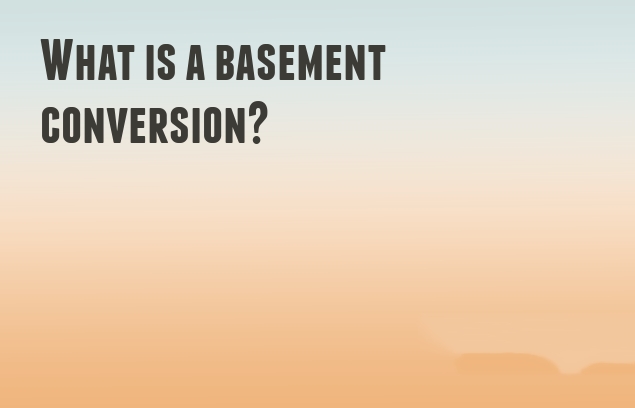
With the liberty to do all desired things with the extra available space, a conversion not only just adds additional value, but gives freedom of creativity. There is no wonder basement conversions are gaining massive popularity with an ability to convert an unused room into a desirable living space. As North London property prices are rising continuously, many property owners in North London with families finding conversion becoming the best option.
Unlike the loft location at the top of the house, the Basement is located close to the main living areas and has a more flexible range of uses.
However, while converting your North London basement into a habitable area, there are a number of factors to take into consideration.
A basement conversion is a process to convert dark, damp and dank spaces into an inhabitable room. The conversion process combined with excavation and expansion includes varying degrees of a basement conversion.
There are many reasons for converting the Basement. Extra space is one of the primary reasons. As if you are lacking with space, or have a growing family, you need a space that is close to the other living areas of your home. Growing youngs generally want a separate space where they can spend their own time or can stay with friends. Converted basements are also great for storage, or you can convert it into a home gym.
Same type and of property in the same area with damp basements have less value than those with a waterproofed basement. Added extra value is always a plus point when it comes to marketing your property. In most instances, the overall basement conversion cost is less than the additional amount added to the property.
However, if you have decided to create additional storage or living space in the Basement, selecting a professional specialist would be beneficial.
Basement conversion costs may include the following:
Here we are sharing average pricing details for North London basement conversion:
Note: All the cost mentioned above is for a rough purpose, kindly coordinate with the specialist for detailed pricing.
FOR WHAT YOU CAN USE YOUR BASEMENT FOR
The choice is, of course, yours. Maybe you already have a specific purpose of converting your Basement. However, we can suggest a few common types of a basement conversion.
Though there are certainly a few aspects on which you can work, there are other areas which require professionals to cater. Your basement conversion project completely depends on the nature of the project and your skills. A professional explores each area carefully, and you can ask them if there's anything you can do by yourself.
TYPES OF BASEMENT CONVERSION
CAN MY BASEMENT FLOOD?
If you are facing a damp issue in your Basement, it would be not easy to find out the water resource of it. Low-lying areas always stay at risk, and without knowing the cause, it makes it vulnerable to flooding. Common cause of flooding are:
WHAT IS BASEMENT WATERPROOFING
Basement waterproofing includes blocking the passage of water into the Basement, that can be achieved by external waterproofing and cementitious tanking. You can also install a cavity membrane drainage system to manage water intrusion.
Do the following, before getting started by the conversion:
Check with your local authority if any planning permission is required. If you have any conversion specialist with you, then they will take care of the permission procedure on your behalf.
You may not need any planning permission for converting your existing Basement. As, according to the government planning portal, generally people need approval if they are building a new basement. However, it would be beneficial to check before initiating work, if you need any permission for internal or external work.
Contact your local planning office in writing to get formal approval for initiating your work.